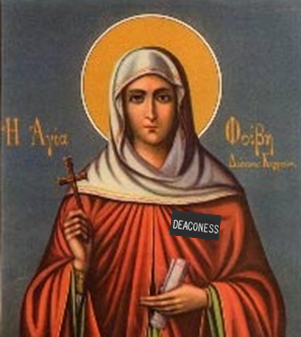Five Women From the Early Church You Should Know (Who Aren’t Named Mary)*
*Okay, except for one of them, but she’s not one of the two or three you’re thinking of.
In a society where inheritance went to the first male relative, Christianity bore a unique position: all were inheritors. As Paul wrote: there is neither Jew nor Greek, neither slave nor free, nor is there male and female, demonstrating that neither is more valuable than the other.
Phoebe

Mentioned by Paul in his letter to the Romans, Phoebe is recognized as a servant or deacon of the church, whether as a descriptive word of what she does or as a designation of her exact office (the one established in Acts 6). What we do know of Phoebe is that she has supported Paul and protected his missionary work, as well as other Christians, recognized as a benefactor or patroness, and that the immense good she did for the whole Church accorded her deep respect despite her gender.
[content-ad]
Monica of Hippo

Some of the most influential writing in Christian theology comes from the pen of St. Augustine, a bishop of North Africa in the fourth century. But Augustine throughout his own autobiography credits someone: his mom. Monica was a devout woman who saw her son Augustine go from heresy to heresy, and even outright away from Christianity completely, and always prayed for him, loving him like the father in the story of the prodigal son: when he came back, she welcomed him, and told him only that she wanted him to become a child of God. Her influence and focus on love hammered to Augustine that love is the beauty of the soul, and beholding God as love has forever colored the teaching of the Western church.
SKM: below-content placeholderWhizzco for FHB

